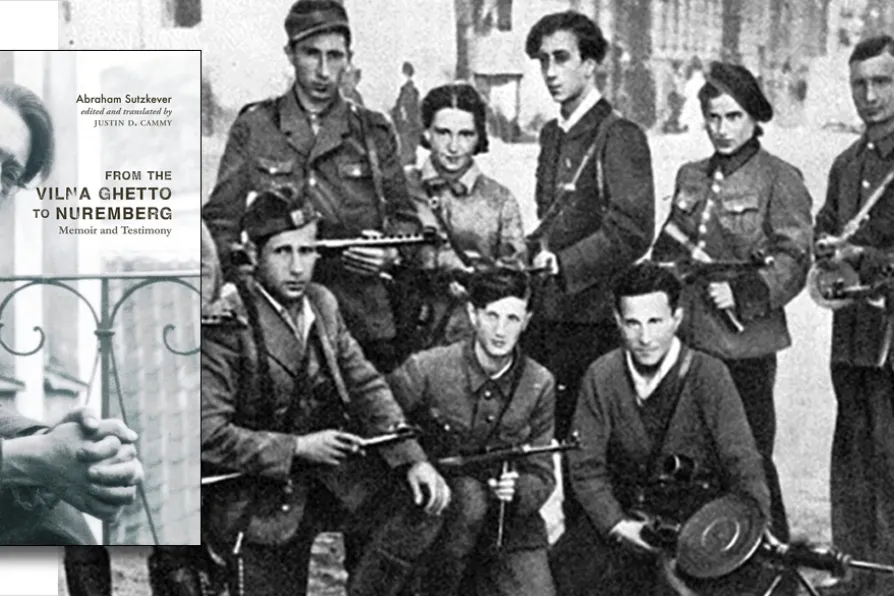JULIA THOMAS unpicks the mental processes that explain why book-to-film adaptations so often disappoint

 DETERMINED: A detachment of the United Partisan Organization with its leader Abba Kovner (center, standing). Kovner was member in the socialist Zionist youth movement HaShomer HaTzair and a cousin of the Israeli Communist Party leader and anti-Zionist activist Meir Vilner. Kovner testified at the trial of Adolf Eichmann in 1961
[UPO member/Wikipedia]
DETERMINED: A detachment of the United Partisan Organization with its leader Abba Kovner (center, standing). Kovner was member in the socialist Zionist youth movement HaShomer HaTzair and a cousin of the Israeli Communist Party leader and anti-Zionist activist Meir Vilner. Kovner testified at the trial of Adolf Eichmann in 1961
[UPO member/Wikipedia]
From the Vilna Ghetto to Nuremberg – Memoir and Testimony
by Abraham Sutzkever
McGill-Queen’s University Press £28.50
ABRAHAM SUTZKEVER was born in 1913 to a leather dealer and raised in the rich cultural heritage of Lithuanian Jews with Vilna (Vilnius) at its core, a city of Poles, Jews, Belorussians, Lithuanians and Russians.
By the 1930s Vilna was highly regarded as a centre for secular Yiddish culture, boasting five daily Yiddish newspapers, a Yiddish education system and a research institute for the study of eastern European Jewish history and culture.
Sutzkever became a celebrated poet in international Yiddish circles, writing lyrically about beauty and nature with little interest in exploring social and political themes.

As Moscow celebrates the 80th anniversary of the Nazi defeat without Western allies in attendance, the EU even sanctions nations choosing to attend, revealing how completely the USSR's sacrifice of 27 million lives has been erased, argues KATE CLARK

Communists lit the spark in the fight against Nazi German occupation, triggering organised sabotage and building bridges between political movements. Many paid with their lives, says Anders Hauch Fenger

The pivotal role of the Red Army and sacrifices of the Russian people in the defeat of Nazi Germany must never be forgotten, writes DR DYLAN MURPHY











